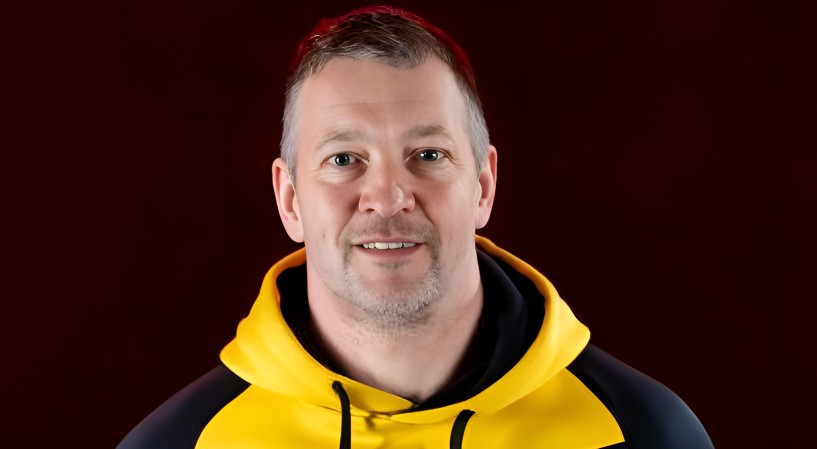Danny McGuire: The Rise, Fall, and Future of a Rugby League Icon

Danny McGuire is a name that resonates deeply within the world of rugby league. Revered as one of the most prolific try-scorers in Super League history, McGuire’s journey from a Leeds-born talent to an icon of the sport is one of relentless determination, natural flair, and inspirational leadership. However, his transition into coaching—most recently with Castleford Tigers—has stirred fresh debate about managerial patience, club direction, and the modern pressures facing former players entering the dugout. This article explores Danny McGuire’s legacy, his turbulent time at Castleford, and what lies ahead for the man who once ruled the pitch with unrivalled prowess.
Early Years and the Making of a Superstar
Born on 6 December 1982 in Leeds, Danny McGuire’s affinity for rugby was evident from a young age. A product of the city’s rich sporting culture, McGuire honed his skills on local pitches before joining the Leeds Rhinos academy. It didn’t take long for the coaches to realise they had a gem in their ranks. His lightning speed, intuitive game sense, and ability to spot gaps in even the tightest defensive lines made him an instant standout.
In 2001, he made his senior debut for Leeds Rhinos. By 2004, he had firmly established himself as a star, scoring 39 tries in one season—a Super League record at the time. His partnership with the likes of Rob Burrow and Kevin Sinfield formed the backbone of a Leeds team that would go on to dominate the competition for over a decade.
Leeds Rhinos Glory and Unmatched Legacy
McGuire’s tenure at Leeds Rhinos was nothing short of legendary. Over 426 appearances, he amassed 267 tries, a figure that cemented his position as the Super League’s all-time leading try-scorer. But his impact went beyond numbers. McGuire had a knack for delivering in clutch moments. Whether it was a Grand Final at Old Trafford or a Challenge Cup showdown, McGuire’s influence often tipped the balance.
Between 2004 and 2017, he played a central role in helping Leeds to win eight Super League titles and two Challenge Cups. His final game for the Rhinos in 2017 saw him awarded the Harry Sunderland Trophy for man of the match—scoring two tries and assisting two more in a triumphant Grand Final win. It was a poetic send-off, one that showcased his enduring brilliance and tactical acumen.
International Duty and Recognition
While his international career never quite mirrored his club success, McGuire still made notable contributions. He represented Great Britain and England between 2004 and 2009, participating in key international tournaments, including the 2008 Rugby League World Cup. Despite stiff competition for playmaker positions, McGuire’s ability to create space and dictate tempo remained an asset at the international level.
He was often admired for his humility off the field and relentless work ethic on it—qualities that would later influence his transition into coaching.
Moving On: Hull KR and Retirement
In 2018, McGuire made the move to Hull Kingston Rovers, where he spent two seasons before hanging up his boots. Though no longer in his prime, McGuire brought leadership and experience to a side fighting for consistency. He was a mentor to younger players and a voice of authority in the dressing room.
Retiring in 2019, McGuire left behind an enviable legacy. Few players have shaped the Super League era as profoundly as he did, and many believed his rugby intelligence would translate naturally into a successful coaching career.
Coaching Ambitions and Castleford Tigers Chapter
After retirement, McGuire stepped into coaching with Hull KR, initially in a behind-the-scenes role. His influence grew quickly, and he eventually took interim charge of the team in 2022. His tactical insights and ability to communicate with players earned him praise, and he was seen as a rising star among British coaches.
In 2024, McGuire accepted the role of assistant coach at Castleford Tigers. The club, struggling for consistency and identity, sought a fresh perspective. Within months, he was promoted to head coach in a bold move that symbolised a reset in strategy. There was optimism around his appointment, fuelled by his playing credentials and potential as a long-term leader.
However, this optimism was short-lived.
The Sacking: A Shock or Inevitable?
In July 2025, after just 18 games in charge, Danny McGuire was sacked by Castleford Tigers. The decision came after a heavy 30–12 loss to Huddersfield, leaving the team languishing near the bottom of the table. With only four wins under his belt, the board declared a need for “reset and long-term vision.”
Many fans and pundits were stunned. McGuire had inherited a squad with limited depth and faced structural challenges that went beyond tactics. Club owner Martin Jepson admitted that recruitment had been subpar, and that McGuire was not entirely to blame. Despite this, the axe fell—marking a harsh end to what could have been a transformative tenure.
Some insiders described the sacking as premature. Sky Sports pundit Jon Wilkin criticised the club’s planning, arguing that McGuire was a victim of rushed decisions and insufficient support. Others, including former players, suggested he needed at least another season to implement his ideas and rebuild confidence within the team.
The Bigger Issue: Coaching Culture in Rugby League
McGuire’s sacking has ignited broader conversations around how former players are treated when transitioning into coaching roles. Unlike football, where ex-players often receive time and backing, rugby league has been criticised for its impatient boardrooms and inconsistent long-term planning.
In McGuire’s case, he was handed a difficult brief with few tools to implement it. His coaching philosophy—a blend of instinctive play and structured aggression—requires time to bear fruit. With a fragmented squad and mounting injuries, results became difficult to achieve. The lack of a consistent recruitment plan only compounded the problems.
It’s a reminder that coaching in elite sport requires not just tactical insight but the right environment to thrive. When that foundation is missing, even the brightest minds can struggle.
The Response from McGuire and the Rugby League Community
McGuire handled his dismissal with class. A cryptic but emotional six-word social media post—”Sorry mate, won’t make tomorrow now”—resonated with fans and former teammates. It was a subtle nod to his disappointment but also his professionalism.
Players who worked under him spoke highly of his leadership and attention to detail. Many believe his time in the sport is far from over. Whether it’s a return to a coaching setup, media punditry, or mentoring roles, McGuire remains a valued figure within the rugby league world.
His ability to read the game, motivate players, and stay grounded makes him an ideal candidate for future roles—provided the right club offers the right structure.
What Lies Ahead?
Danny McGuire’s future is still unwritten, but it’s clear he remains committed to rugby league. He may take time to reflect and recharge, but few doubt he’ll be back in some capacity. The rugby world needs characters like McGuire—intelligent, passionate, and capable of shaping the next generation of stars.
Clubs looking to rebuild or develop young talent could do far worse than to bring McGuire on board. His understanding of modern player dynamics and tactical evolution places him in an elite category of post-playing professionals.
Conclusion: A Career Still in Motion
Danny McGuire’s story is far from over. From dazzling the crowds at Headingley to facing boardroom politics in Castleford, his journey reflects both the glory and the grind of professional sport. While his recent dismissal may seem like a setback, those who’ve followed his career know that McGuire is nothing if not resilient.
In many ways, he embodies the spirit of rugby league itself—tough, adaptable, and deeply rooted in community. As clubs and fans look forward, there’s little doubt that Danny McGuire will remain a name spoken with respect and admiration across the terraces of British rugby league.



